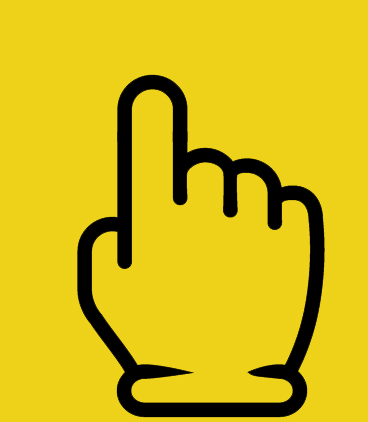
Finding your dream job involves more than simply a well-crafted CV and cover letter in today's fiercely competitive employment market. Excellent interviewing skills are also necessary. Unfortunately, a lot of job seekers have trouble with interviews and don't notice when their methods need to be improved. Do you count among them?
To land the job you want, you must be able to spot the warning indications that your interviewing skills need to be improved. There are actions you can do to enhance your interviewing skills, regardless of whether you find it difficult to respond to questions, lack confidence, or receive job offers.
In this post, we'll look at the warning indications that you need to sharpen your interviewing skills and offer helpful advice on how to do so. You may improve your chances of getting your dream job and moving on in your career by concentrating on your communication abilities, body language, and preparedness. So let's get started and discover how to spot the warning indications that you need to sharpen your interviewing skills.
Signs You Need to Improve Your Interview Skills
You're not getting job offers
It's crucial to take into account every step of the interview process if you aren't obtaining employment offers. Did you get ready for the interview enough? Have you done any research on the business and the opening? Are you properly attired, and are you on time? All of these important elements may have an effect on your likelihood of receiving a job offer.
Moreover, take into account how you responded to the interview questions. Were your answers succinct and pertinent? Did you give any examples to back up your abilities and experience? Have you expressed interest in the business and the role by asking insightful questions? Each of these is essential to a good interview.
It might be time to ask for input from others if you are continually not obtaining employment offers. Ask a reliable friend, mentor, or even a career coach to evaluate your interviewing methods and offer helpful criticism. They can advise you on how to improve your interviewing abilities and point out areas for you to focus on.
Keep in mind that developing your interviewing skills requires practise, work, and a willingness to learn. If you don't get a job offer straight away, don't give up. Instead, concentrate on identifying your areas for growth and developing a plan of action to enhance your interviewing abilities. You may improve your interviewing skills with practise and raise your likelihood of getting the job of your dreams.
You struggle with answering questions
If you find it difficult to provide thoughtful responses to interview questions, this may be another indication that your interviewing skills need to be improved. You may build the abilities necessary to react comfortably and effectively to interview questions through practise. Interview questions might be difficult and demand you to think quickly.
If you experience difficulty answering questions, pause for a moment to gather your thoughts before answering. Instead than rushing into an answer that doesn't properly address the topic, it is preferable to take some time to organise your thoughts. Pay close attention to the interviewer's question, and don't be hesitant to clarify it if necessary. Once you have comprehended the query, take a moment to breathe deeply before providing a direct and succinct response.
It's also crucial to get ready in advance for any possible interview questions. Study the typical interview questions for the field and position for which you are applying, and then practise your answers. Structure your responses using the STAR technique (Situation, Task, Action, Result) and give specific examples of your abilities and expertise. You might feel more at ease and confident during the interview by doing some advance preparation.
Remember that it's acceptable to not have all the answers. If you are unsure of the response to a question, be honest and say that you are open to learning the solution. Employers value candour and a desire to develop professionally while working for a company.
You lack confidence
Lack of confidence during the interview process is another indication that you might need to enhance your interviewing techniques. In an interview, confidence is crucial since it shows the interviewer that you are capable and confident in your skills.
There are various things you may do to enhance your interviewing techniques if you lack confidence. First, get ready for the interview beforehand by doing some research on the business and the role. Practice answering potential interview questions and develop a list of questions to ask the interviewer. You might feel more secure and ready for the interview by doing some advance planning.
Second, be properly attired and on time. You'll feel more assured and professional throughout the interview if you arrive on time and are well attired. Make sure you have a copy of your resume along with any other required paperwork.
Make an effort to keep the interviewer in your line of sight while speaking clearly and authoritatively. Pay close attention to the interviewer's questions, then respond honestly and briefly. Use a welcoming, open posture while sitting up straight and using positive body language.
You don't dress appropriately
If you don't dress adequately for the interview, that is another indication that you might need to work on your interviewing skills. The interviewer's perception of you and your suitability for the job can be strongly influenced by how you conduct yourself during the interview process.
It's crucial to take the company's culture and dress code into account when getting ready for an interview. Get a sense of the company's dress code by doing some prior research on it. Always dress more formally than too casually when in doubt.
For the majority of interviews, men should wear a suit, tie or dress shirt and trousers. Make sure your shoes are polished and that your clothes are clean and ironed. Wearing garish patterns or bright colours, or anything else that is overly dazzling or distracting, is best avoided.
For most interviews, ladies should wear a suit, a dress or dress trousers and a top. Stay away from wearing anything too casual or revealing, such shorts or flip-flops. Make sure your shoes are comfy and polished, and that your clothing is crisp and ironed.
Always keep in mind that how you present yourself during the interview process speaks volumes about your professionalism and attention to detail. You can show the interviewer that you are serious about the position and the interview by dressing professionally.
Conclusion On: Signs You Need to Improve Your Interview Skills
Recognizing the telltale signals that your interviewing skills require improvement will help you pinpoint problem areas and raise your likelihood of getting the job of your dreams. You can create a strategy to improve your interviewing skills by reflecting on your prior interview experiences and looking for any trends or recurrent problems.
You may need to work on your interviewing skills if you aren't getting job offers, finding it difficult to respond to inquiries, are feeling insecure, or aren't dressed adequately. These problems can be resolved by preparing answers to frequently asked interview questions, doing prior research on the organization and the role, and dressing appropriately for the interview.
Hope you liked this article on -Signs You Need to Improve Your Interview Skills. If you have any queries or questions, you can reach out at info@interview-expert.com. For more guidance on interview preparation, contact Interview Expert

